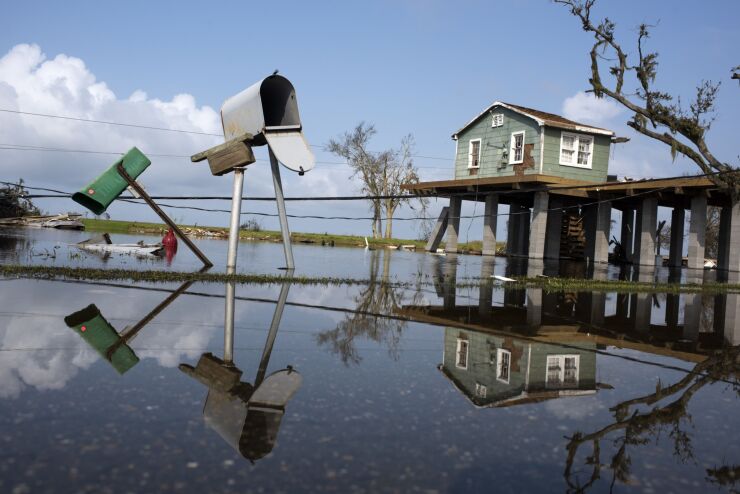More than 14.5 million single and multi-family homes were affected by natural disaster events last year and it caused an estimated $56.92 billion in
The impact of natural disasters can vary depending on the event severity and whether a community is prepared to handle the various disruptions caused by the event. CoreLogic analyzed 13 severe weather events and over 120 million residential structures in the U.S using its reconstruction cost value estimate or the actual cost of damage to a property that would occur including the cost of materials, equipment and labor to rebuild.
Tom Larsen, CoreLogic’s principal of industry solutions, said in a statement: “By leveraging granular data for the increasing frequency and severity of catastrophes, we are able to see that more than 14.5 million homes were impacted to some degree by natural hazards in 2021. That’s about one in every 10 homes in the United States. Insurers and lenders can leverage the latest technologies and work cross-functionally to better understand this risk, protect homeowners and enable faster recovery times.”
Risk factors related to natural hazard events have increased costs for insurers and homeowners in certain areas. For example, the total written premium in the state of California, between 2017 to 2020, for dwelling fire and homeowners insurance, has increased from
The report broke down the following four types of natural disaster events:
Wildfires caused $1.46 billion in property damage. Over 4,000 homes were impacted and the reconstruction cost value was $0.73 billion.
- Hurricanes caused $33 billion in property damage. The reconstruction cost value was about $395 billion and impacted 1,233,860 homes.
- Severe weather caused $7.46 billion in property damage. Reconstruction cost value was about $124 billion and impacted 563,637 homes.
- Winter storm weather caused $15 billion in property damage and $2.27 trillion in reconstruction cost value. The events impacted 12,764,941 homes.
“Nearly every property in the U.S. has exposure to hazard risk, and the effects of a catastrophic event can result in an unstable economy with high levels of unemployment and mortgage delinquency,” the report states.
The report goes on to also highlight the impact of Hurricane Ida on Houma, Louisiana, which was hit directly by the category 4 hurricane last August. Researchers analyzed the mortgage delinquency rate and it almost doubled from 7.4% in August to 13.5% in October in the region.
There are several areas for stakeholders, including insurers, to increase resilience and preparedness, according to the report. For example, insurance companies can use






